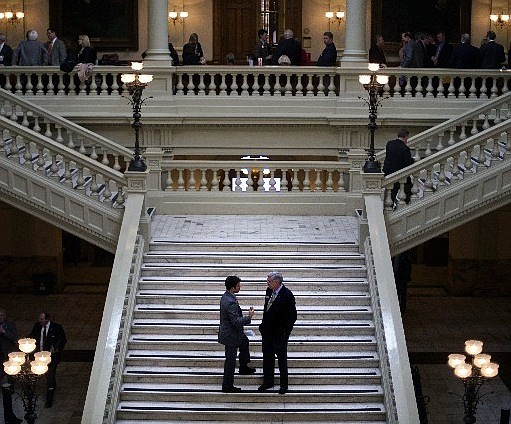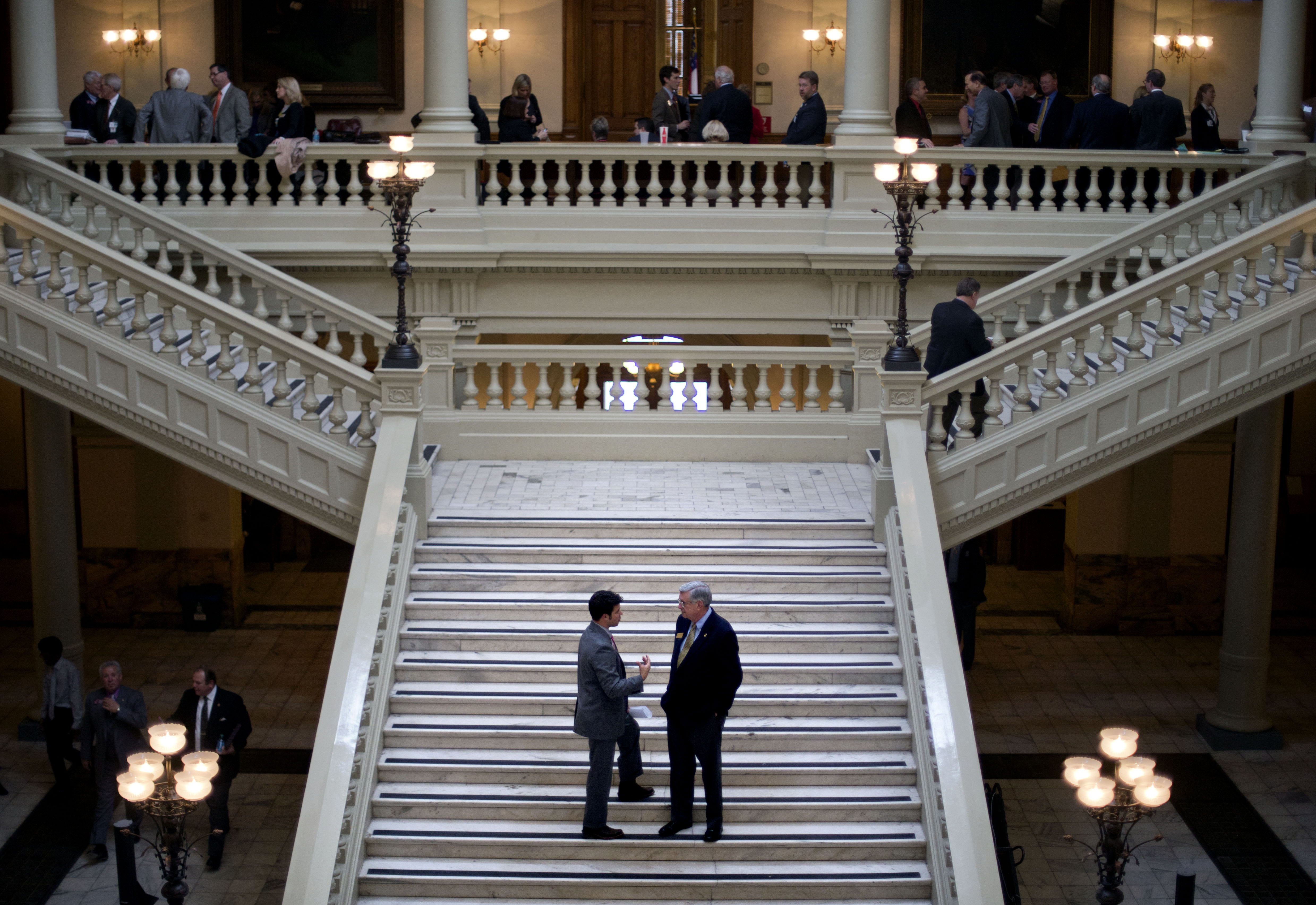ATLANTA - Lobbyists bought a few last rounds of golf, sporting tickets and other perks for Georgia's public officials before new rules took effect Wednesday that cut down on at least some of that spending.
The new rules generally ban lobbyists from spending more than $75 at a time on public officials or giving them free tickets to games, concerts and other recreational events. Still, there are plenty of loopholes that will allow for significant influence peddling even after the General Assembly reconvenes this month for its annual 40-day session.
Republican Gov. Nathan Deal signed the new rules on May 6. It created an awkward lag. While the state's top-ranking political leaders supported an end to unlimited lobbyist spending, the old system remained legal until New Year's Day. Several politicians accepted gifts during this delay that would be illegal, or at least questionable, once the new restrictions start.
For example, Sprint lobbyist Patrick Muchmore gave Rep. Don Parsons, R-Marietta, Falcons football tickets worth $340 on Nov. 10, according to lobbyist filings with the state's Ethics Commission. Parsons has influence over legislation that affects Sprint because he is chairman of the House Energy, Utilities and Telecommunications Committee. Parsons did not return a call seeking comment, while Muchmore deferred comment to a Sprint spokesman.
Those who supported tighter rules on lobbyist spending were not surprised that politicians did not voluntarily scale back.
"That was my expectation of why they waited until Jan. 1, 2014, for the law to go into effect," said William Perry, executive director of Common Cause Georgia. "There was no other reason other than to work in one more Masters Tournament, one more baseball season, one more football season before the new law went into effect."
Rep. Jason Shaw, R-Lakeland, accepted four tickets on Sept. 27 from a lobbyist so his family could attend a Braves game. Those tickets were provided by Georgia Power lobbyist Scott Draper, whom Shaw described as a close family friend. Draper and Shaw's father know each other from when Shaw's father was a state lawmaker. Georgia Power spokesman John Kraft said the utility follows all lobbying laws.
"The way I see it is the new law takes effect Jan. 1," Shaw said. "If it was something that I thought was wrong, I wouldn't do it. A ticket to the Braves game would not factor into any decisions that I make. I'm going to go the Braves game regardless of whether I have to pay it or not."
AT&T spent $250 on tickets to a Sept. 23 golf tournament for Public Service Commissioners Lauren "Bubba" McDonald and Doug Everett. Everett said he attended the tournament sponsored by AT&T, which raises money for the Cobb County Chamber of Commerce. Everett, a Republican, said he played a few rounds, then had to quit because of a bad shoulder.
UHS-Pruitt Corp. lobbyist Christopher Downing bought Rep. Mickey Channell, the Republican chairman of the Ways and Means Committee, and Rep. Butch Parrish, R-Swainsboro, rounds of golf valued at nearly $177 on June 10. Downing, Channell and Parrish did not return messages.
Major questions remain over how the new law will be enforced. One glaring question is whether employees of the state's public university system will be exempt from the lobbying rules, despite their historically heavy spending on public officials.
Travel remains another major avenue of spending. The law allows lobbyists to pay for the "reasonable expenses" of public officials when they travel to conferences or meetings related to their public duties. Those expenses can include transportation, lodging and meals. The general $75 limit on spending may not apply during these trips.
Some questions will remain unresolved until Georgia's Ethics Commission creates rules and opinions interpreting the new law, a process that could take months, said Rick Thompson, who advises firms and politicians on financial disclosure laws. Thompson was previously the executive secretary of the Georgia ethics commission. For example, Thompson said the ethics commission may define the $75 limit as the maximum for a reasonable expense during travel.
"One thing that we're telling our clients is that we need to wait to see what kind of direction the ethics commission is going to give," he said.

